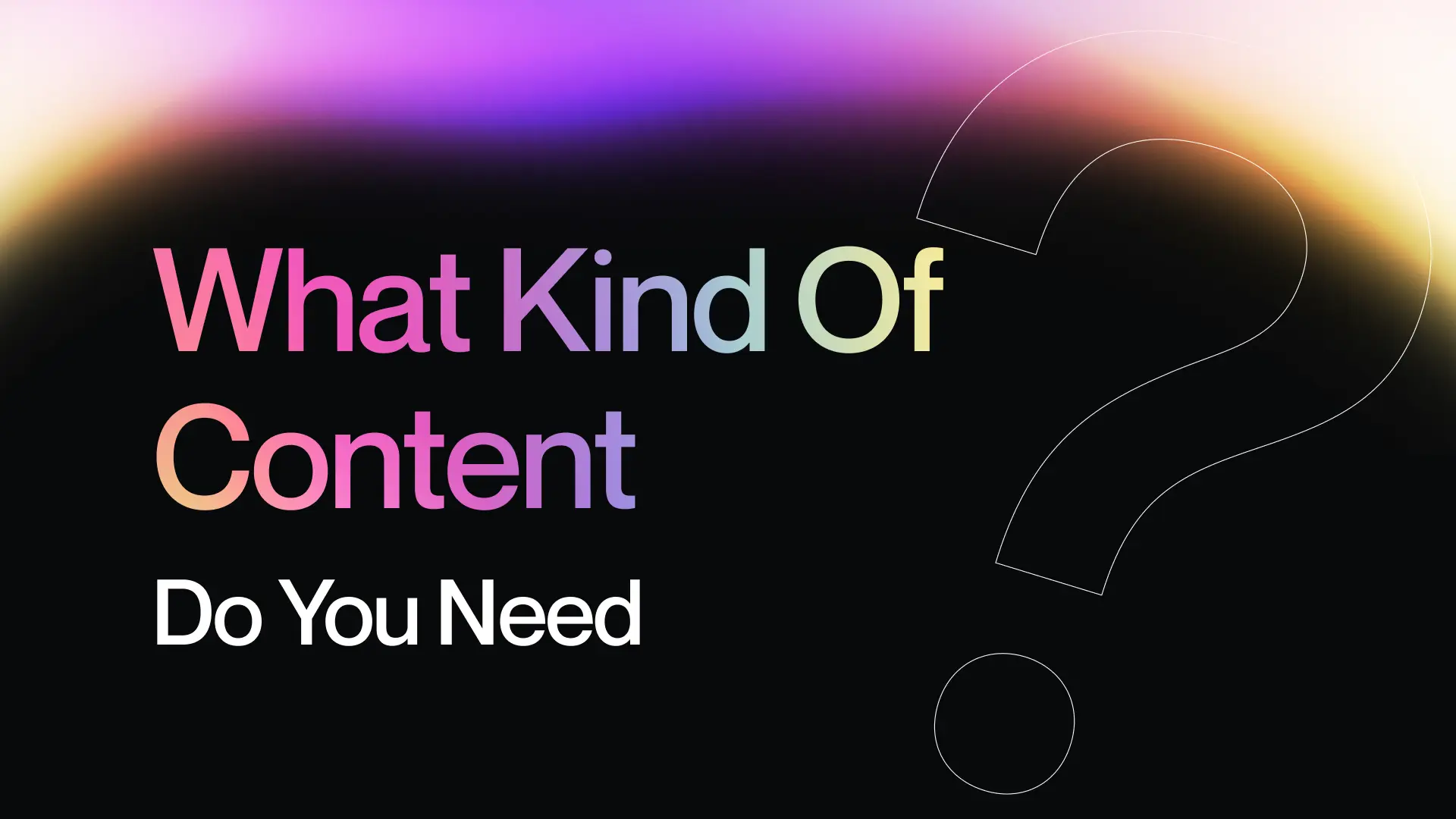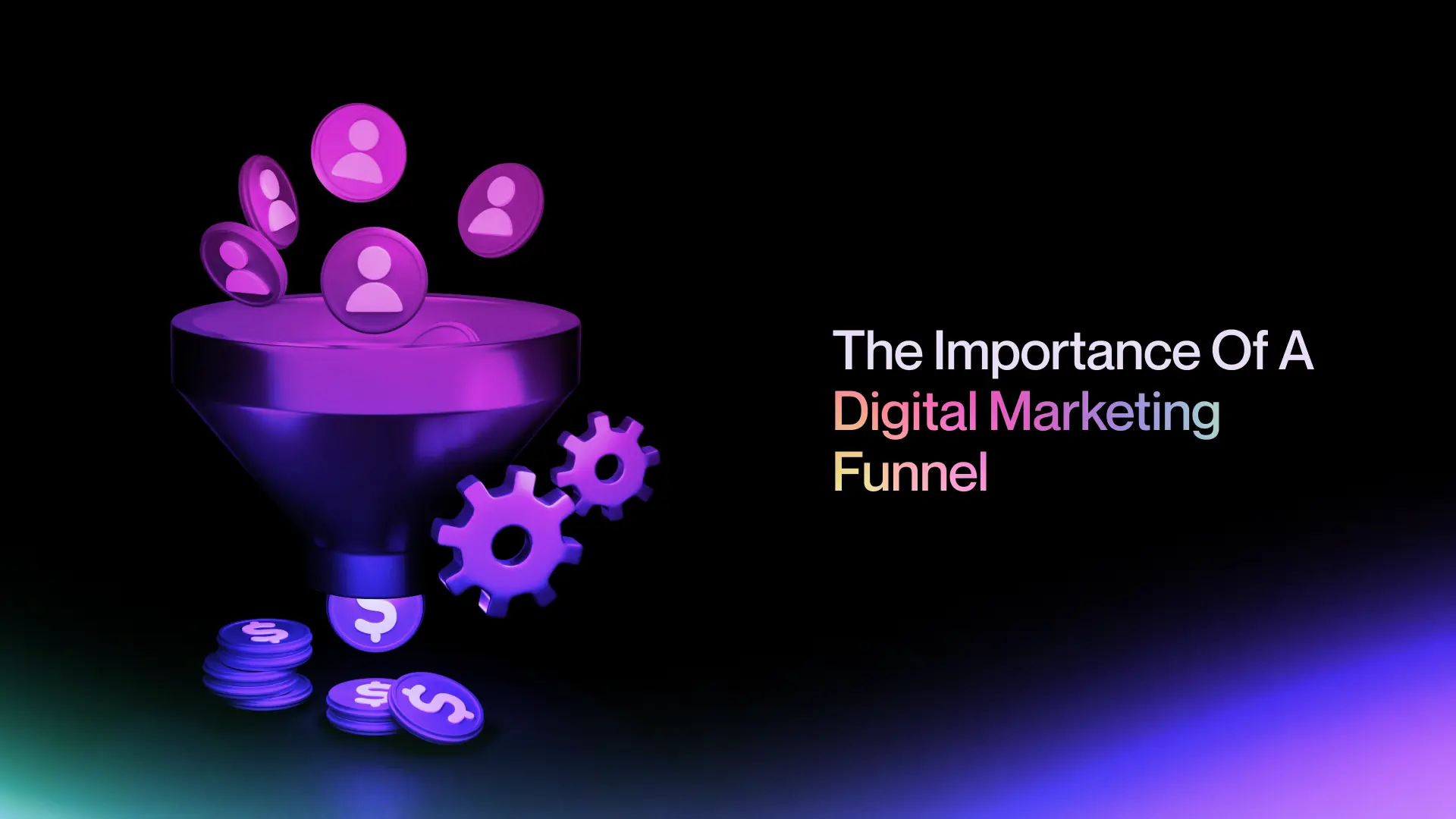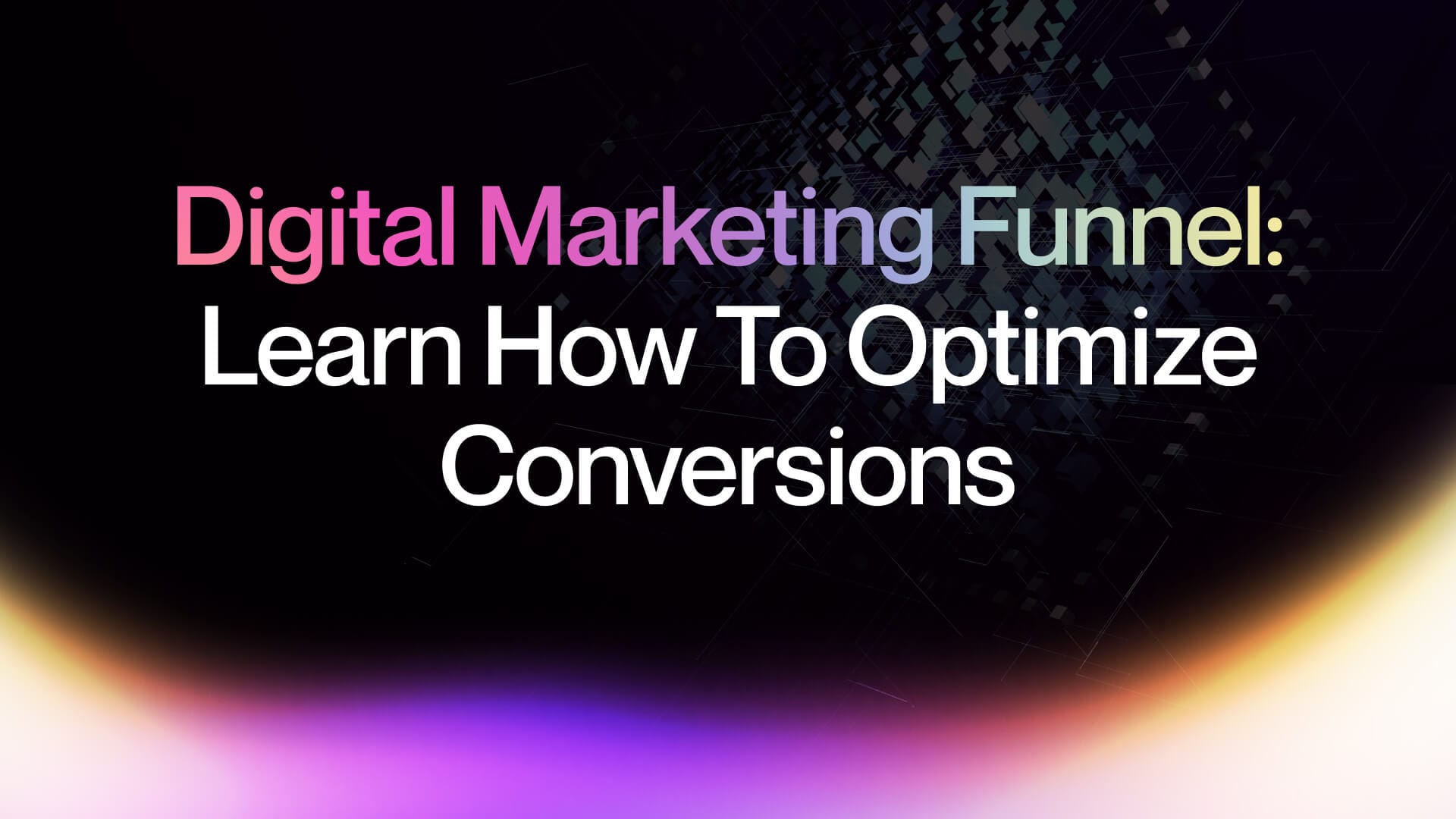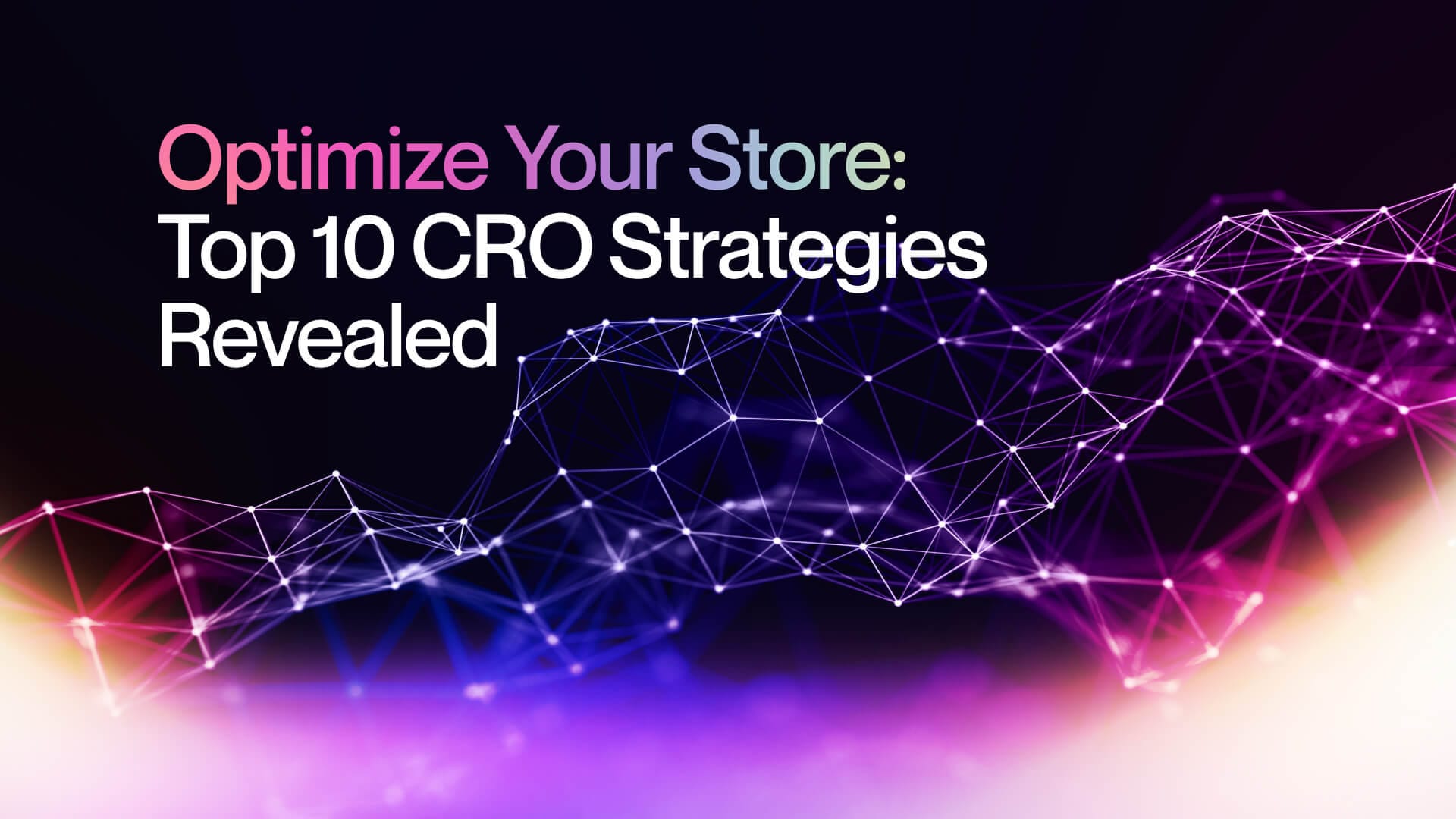Staying up to date with the latest concepts and strategies of digital marketing is crucial for companies that want to have an effective impact on consumers.
Despite the numerous resources and tools available to everyone, only those who learn how to utilize them will truly benefit.
The digital marketing funnel, originally designed for sales teams, has gradually been incorporated into communication strategies.
Let’s explain this concept and help you learn what you need to do with it to optimize your conversion rates.
Digital Marketing Funnel: Explained
A digital marketing funnel can be described as the complete purchasing journey of potential customers, from brand awareness to becoming customers.
Originally a tool used by salespeople, it has now become a crucial resource for successful marketing strategies.
While there are several ways to approach the funnel concept, this article will focus on a commonly used model with six stages:
- Exposure;
- Discovery;
- Consideration;
- Conversion;
- Customer relationship;
- Retention.
The purpose of the funnel is to assist marketing experts in determining what offerings are appropriate for users at every stage of the persuasion process.
In light of the fierce competition among businesses fighting for consumer attention and resources, it is essential to prepare and strengthen communication efforts that resonate with the right audience and buyer personas.
Well, by using a well-crafted digital marketing funnel, your Company can streamline strategies and optimize conversion rates.
Why Does Your Business Need a Digital Marketing Funnel?
The key benefit a digital marketing funnel provides is that it allows for better segmentation of marketing actions, enabling you to direct content, ads, and other strategies with messages that are relevant to your audience throughout their buyer's journey.
This results in more efficient lead generation and more qualified leads for your sales team, making the conversion process easier.
By following each step of the funnel, you get closer to your consumers and remain relevant to them throughout their journey.
Moreover, it increases the productivity of your team, as they focus on producing the right content at the right time, without wasting resources on ineffective actions.
By accurately targeting the right audience with appropriate content, the funnel helps you avoid creating content that is not yet suitable for your audience or targeting users who are not yet aware of their problems.
Last but not least, the funnel also allows you to nudge users to move from one stage to another.
Ready to maximize your conversions? Imbassy’s CRO Services are here to help you level up your marketing game transforming your online presence!
Creating A Funnel For Your Business

It’s quite interesting to know that even though a digital marketing funnel plays an essential role in the success of every Company’s general marketing strategy, not many marketers focus significantly on it.
Let’s see what you need to do to create a funnel of this kind for your business.
Set Your Goals
The first step is to establish a clear goal for your actions. This goal should be specific, such as increasing sales or improving ROI.
Define Your Stages
Once you have your goal, the next step is to structure your funnel by defining the stages of the sales cycle. By creating a visual representation of the funnel, you can determine the best model for your business.
Traffic Generation
Once your funnel is established, the next step is to generate traffic for each stage. This will ensure that your target audience receives material that is appropriate for their level of knowledge.
What Kind Of Content Do You Need?

Understanding each stage also means crafting different types of SEO-optimized content accordingly. Let’s walk you through the best content type for each stage.
Exposure
Without exposure, nothing else will work since potential customers won't be aware of your Company. Advertising and promoting your brand on the appropriate platforms, such as Google, is a great way to achieve this.
Your content marketing strategy should concentrate on strengthening your presence through SEO tools and practices or paid advertisements in search engines. The aim is to produce content that catches the attention of users, such as educational videos and infographics.
Discovery
The next step is Discovery, where the focus is on producing content that encourages users to take an interest in your brand and become a lead.
The goal is to offer rich and educational content that presents a problem and offers a solution, thereby encouraging the user to leave their contact information.
Consideration
Once the user is aware of your brand and knows that your Company can solve their problem, they move to the Consideration stage.
Your content should provide information that confirms the efficiency of your solution, such as Frequently Asked Questions (FAQ), customer reviews, and Success Missions.
Conversion
At this stage, the aim is to help them make a decision by creating customized campaigns and landing pages focused on conversion.
CR
Once the lead is converted, the focus shifts to building a closer relationship with the customer, providing educational content that helps them use your product or service to solve their problems.
Investing in a drip campaign to educate the customer and address their main questions is an excellent option. It's also essential to invest resources in email marketing to strengthen ties with the lead and establish a direct channel with them.
Retention
The final stage is retention, where the aim is to ensure that the customer continues to make new transactions.
This stage involves producing content and monitoring and analyzing communications regularly, including interviewing the customer to create a case study that can be used in the previous stages.
The Importance Of A Digital Marketing Funnel

The bottom line to keep in mind is that your digital marketing funnel is one of the most important things to keep in mind when thinking about your general marketing strategy.
First and foremost, this funnel will allow you to track and measure the performance of your other marketing campaigns.
And, once you gain a comprehensive understanding of the customer journey, you can pinpoint areas in which you need to enhance your marketing strategies.
Furthermore, your Company can leverage a digital marketing funnel to tailor personalized messages to specific customers and segments. The digital marketing funnel plays a vital role in monitoring the progress of prospective customers as they navigate through the sales process.
It empowers marketers to identify and engage with the appropriate prospects using targeted messages at the opportune moment.
Additionally, it facilitates the measurement of marketing efficacy and the optimization of campaigns for optimal results.
Lastly, the digital marketing funnel can also assist in identifying possible issues in the customer journey and implementing changes to improve customer satisfaction and conversion rates.
Final Thoughts
It is clear that a digital marketing funnel is a crucial tool for any business that wants to be effective when reaching and converting potential customers.
As technology continues to evolve and consumer behavior changes, businesses must adapt their marketing strategies to remain competitive, and the digital marketing funnel can be a valuable asset in this effort.
Pay attention to it.
Author



.jpg)